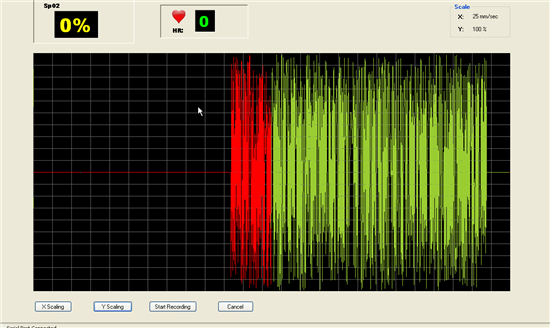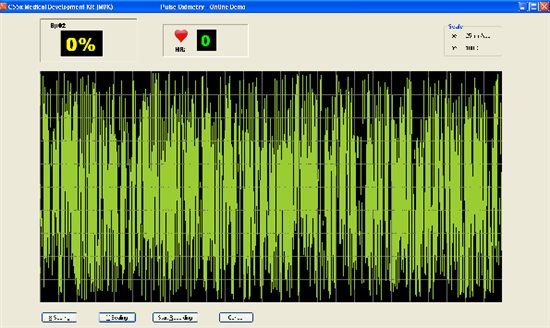Hi,
I am working with TI's pulse oximeter. I have 2 doubts:
1) When i connect EVM 5505 board to my laptop and run the pulse oximeter , i am only able to look at the signal on the LCD , the %SPO2 and HR are being shown as 0. I am not sure whats wrong ? Even the PPG signal looks some what random when compared to what is shown in the PDF file provided with the kit.
2) how do i extract the PPG signal into MATLAB ? Is there any way to save it into txt file and use it in MATLAB?
I would really appreciate if anyone could help me with these questions.
Kali.



